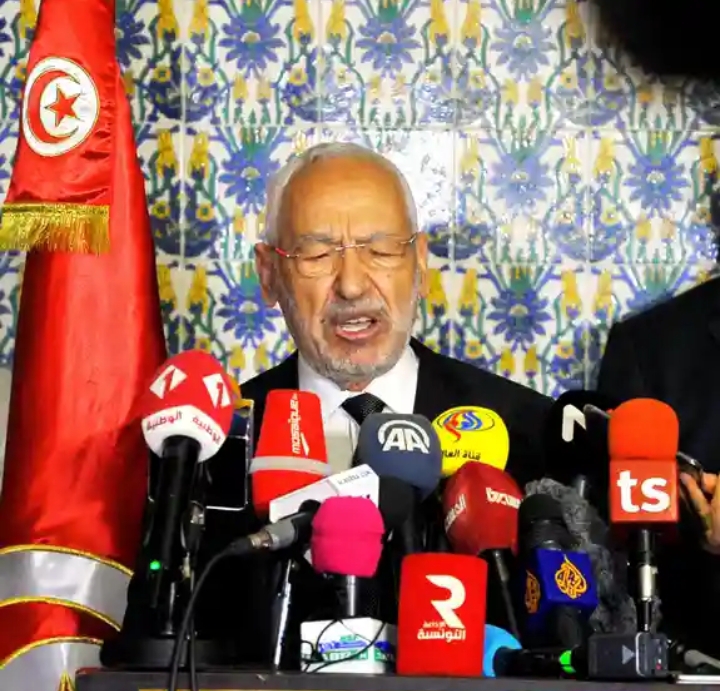Tunisia sentences 21 political and opposition figures, including Rached Ghannouchi, to lengthy prison terms over alleged terrorism, inciting violence, and coup attempts, amid growing concerns of political repression under President Kais Saied.
Tunisia Jails Top Opposition Leaders in Mass Trial Amid Crackdown on Dissent


Tunisia has handed down significant prison sentences to a group of high-profile politicians and officials, including prominent opposition leader Rached Ghannouchi. The court's ruling on Tuesday marked a major development in the country's ongoing political turmoil. In a mass trial, 21 individuals were sentenced to prison terms ranging from 12 to 35 years. Out of those convicted, ten are currently in detention, while the remaining eleven have reportedly fled the country to avoid prosecution.
The individuals were charged with serious offenses that include involvement in an organization associated with terrorist activities, inciting violence, conspiring to overthrow the government, and the recruitment and training of individuals for terrorist purposes both within Tunisia and abroad. These charges have sparked widespread criticism from human rights advocates and opposition groups who claim the legal process lacks fairness and transparency.
Defense lawyers representing Rached Ghannouchi released a statement condemning the trial, asserting that all accusations were based on the testimony of an anonymous and secret witness. According to the lawyers, the witness provided inconsistent and unsupported claims, many of which were later withdrawn. They argue that the absence of credible evidence and the reliance on a concealed source reveal the politically motivated nature of the trial.
Ghannouchi, who leads the Islamist Ennahda party and formerly served as the speaker of Tunisia’s parliament before its dissolution by President Kais Saied, received a 14-year sentence in this latest case. He has already been imprisoned since 2023 and has previously been convicted in two other separate cases, bringing his total prison time to 27 years. At 84 years old, Ghannouchi has refused to appear in court, citing his belief that the Tunisian judiciary is under the control of the executive branch and no longer operates independently.
Among the other notable figures sentenced were Kamel Guizani, the former intelligence chief; Rafik Abdessalem, a former foreign minister; and Mouadh Ghannouchi, the son of Rached Ghannouchi. All three received the maximum 35-year sentences and have reportedly left Tunisia. Nadia Akacha, who formerly served as chief of staff to President Saied, was also convicted, according to local reports from Mosaique FM.
Since assuming power six years ago, President Kais Saied has undertaken a series of controversial steps that have transformed Tunisia’s political landscape. In 2021, he dissolved the elected parliament and has since been accused of cracking down on opposition voices and consolidating power. Critics argue that Saied is dismantling the democratic institutions established following the 2011 Arab Spring uprisings, which had made Tunisia a symbol of democratic progress in the region.
The latest sentences follow a pattern of intensified repression. In April of this year, several politicians, businesspeople, and lawyers were sentenced to prison terms of up to 66 years. These developments have raised concerns among international observers and civil society organizations about the deteriorating state of political freedoms and the rule of law in Tunisia.
Opposition figures and activists have repeatedly stated that Tunisia’s democratic aspirations are being crushed under the weight of authoritarian practices. They accuse President Saied of using the judiciary and security forces as tools to eliminate political rivals and suppress dissent. In response to these accusations, Saied has insisted that his actions are necessary to purge the country of systemic corruption among the political elite, a justification that continues to divide public opinion both domestically and internationally.

 বাংলা
বাংলা  Spanish
Spanish  Arabic
Arabic  French
French  Chinese
Chinese 
